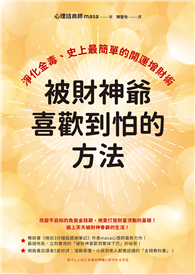This book presents the theme of love in psychoanalytic theory. The theme is traced back to the main reference literature of Freud and Lacan. The emergence of the subject in the course of these authors, its relevance to the context of the psychoanalytic clinic and its articulation with other areas of knowledge and art, such as philosophy and cinema, are exposed. Love is associated with the idea of a lack and production to be discovered in the encounter with the beloved and chosen other. Plato’s The Banquet is discussed, as well as Lacan’s comments on this text in order to support the thesis of love as a lack. Based on these, the concepts of the metaphor of love, the positions of lover (érastès) and beloved (érôménos) and the object agalma are analyzed. The last part of this book analyzes Luis Buñuel’s film Tristana (1970). This work was selected and discussed because it is a relevant and thought-provoking script, in which the questions of love are posed to the title character. The author invites the reader to reflect on the theme and to produce new questions.
| FindBook |
有 1 項符合
Love in Psychoanalysis的圖書 |
 |
Love in Psychoanalysis 作者:de Oliveira Silva 出版社:Our Knowledge Publishing 出版日期:2024-10-15 語言:英文 規格:平裝 / 200頁 / 22.86 x 15.24 x 1.17 cm / 普通級/ 初版 |
| 圖書館借閱 |
| 國家圖書館 | 全國圖書書目資訊網 | 國立公共資訊圖書館 | 電子書服務平台 | MetaCat 跨館整合查詢 |
| 臺北市立圖書館 | 新北市立圖書館 | 基隆市公共圖書館 | 桃園市立圖書館 | 新竹縣公共圖書館 |
| 苗栗縣立圖書館 | 臺中市立圖書館 | 彰化縣公共圖書館 | 南投縣文化局 | 雲林縣公共圖書館 |
| 嘉義縣圖書館 | 臺南市立圖書館 | 高雄市立圖書館 | 屏東縣公共圖書館 | 宜蘭縣公共圖書館 |
| 花蓮縣文化局 | 臺東縣文化處 |
|
|
圖書介紹 - 資料來源:博客來 評分:
圖書名稱:Love in Psychoanalysis
A Theory of Human Motivation
A GENERAL INTRODUCTION TO PSYCHOANALYSIS, Book II
The Essential Enneagram: The Definitive Personality Test and Self-Discovery Guide -- Revised & Updated
Total Black Empowerment Through the Creation of Powerful Minds
Why Ferenczi?
Justice-Involved Youth: Healing Through Trauma with Creativity and Community Regeneration + Peer-Support Workbook
Justice-Involved Youth: Healing Through Trauma with Creativity and Community Regeneration + Peer-Support Workbook
Talking the Talk: Language, Psychology and Science
Talking the Talk: Language, Psychology and Science
The Psychology of Advertising
A GENERAL INTRODUCTION TO PSYCHOANALYSIS, Book II
The Essential Enneagram: The Definitive Personality Test and Self-Discovery Guide -- Revised & Updated
Total Black Empowerment Through the Creation of Powerful Minds
Why Ferenczi?
Justice-Involved Youth: Healing Through Trauma with Creativity and Community Regeneration + Peer-Support Workbook
Justice-Involved Youth: Healing Through Trauma with Creativity and Community Regeneration + Peer-Support Workbook
Talking the Talk: Language, Psychology and Science
Talking the Talk: Language, Psychology and Science
The Psychology of Advertising
|










